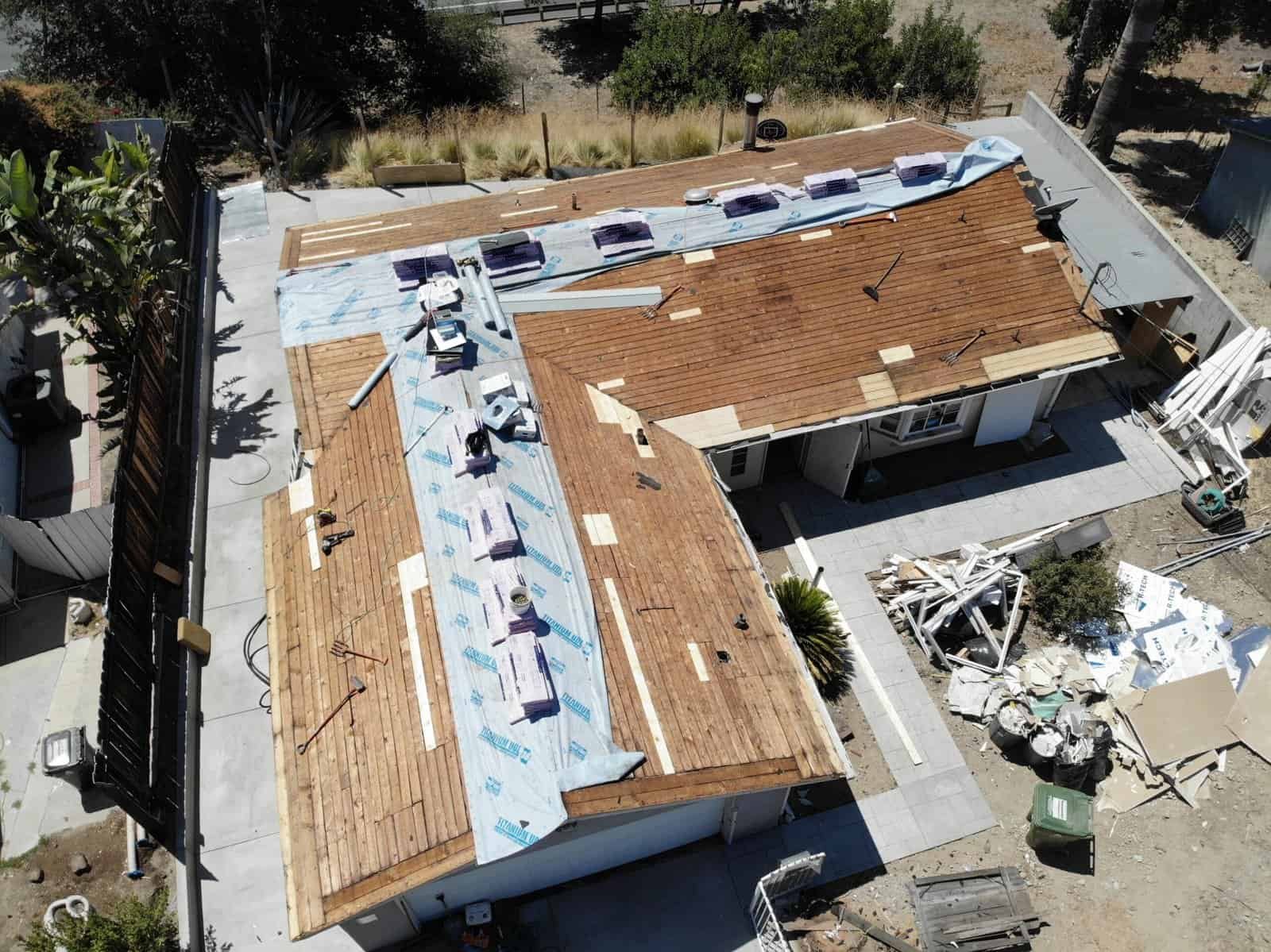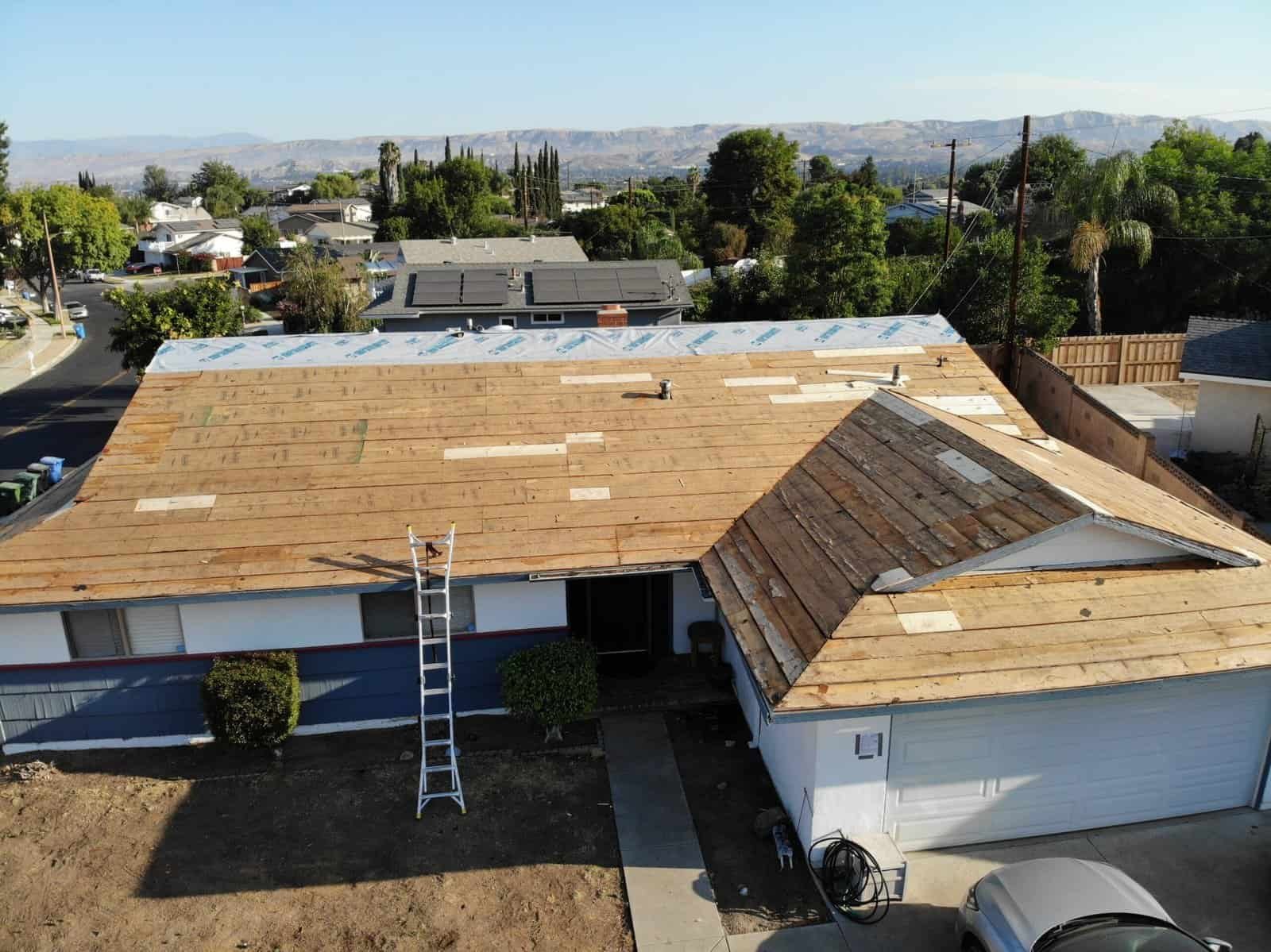Roofs are made to endure a powerful barrage of bad weather. Even though they are built to withstand extreme weather, even the most durable rooftops will inevitably deteriorate from regular contact with the sun, rain, hail, or snow. Minor holes and cracks can occur as a result, allowing moisture to enter and potentially causing costly damage. In rare circumstances, the damage can necessitate installing a new rooftop. DIYers may preserve and restore a rooftop more easily and affordably by using roof sealants to plug any small cracks. While some sealants can help establish a nearly insurmountable wall from water and sunlight across an entire rooftop, others can seal up minor, localized leaks. Read on to learn everything about the best roof patch (sealant) for roof leaks.
Table of Contents
Toggle
What to Take Into Account When Selecting the Best Roof Sealant
Choosing the finest roof sealant for your unique needs might be challenging with so many options available. Reviewing and contrasting the qualities of roof sealants might help you reduce your options. The following factors can help you eliminate uncertainty when choosing the ideal roof sealant for you.
Purpose
Roof sealants are primarily used for two main purposes: protecting and repairing roofs. Roof sealants can fix minor breaches before they cause more significant harm and can offer a preventative seal against water and sunlight, based on the type.
Although certain roof sealants work on almost any kind of rooftop, the majority of sealants are designed to operate with particular roofing components.
Different properties of roofing components like asphalt shingles, hybrid slates, metal, and rubber necessitate careful study. What is regarded as the best roof patch sealant also depends on whether a rooftop is level or sloped. The ideal sort of roof sealant will depend on whether you’re trying to seal a whole roof or repair minimal damage.
Best Roof Patch Type
Solvent-based and water-based roof sealants fall into several types. Despite having excellent resistance to the weather, solvent-based sealants are typically more pricey, heavier, and difficult to use. Water-based sealants are less expensive and have fewer scents, but they aren’t as weatherproof.
They may require more regular maintenance since they may break down many years earlier than solvent-based sealants.
Water-based sealants don’t require a mask, while solvent-based sealants do necessitate the use of one during installation to prevent breathing in solution particles. Solvent-based sealants may be regarded as Household Hazardous Waste (HHW), making disposal of them more difficult and necessitating the use of a particular resource. After the components of the box have completely dried by air, water-based adhesives can be thrown away in your domestic garbage can.

What Qualifies a Good Roof Sealant?
The most important characteristics to look for in a rooftop sealant are water resistance, durability, ease of application, UV reflectivity, cost, and substance.
Water Repellency
Water resistance is a crucial feature to have since every roof will eventually come into contact with water, no matter what kind of rooftop you plan to apply sealant on. This is particularly true if the rooftop is located somewhere with greater annual rainfall averages.
Endurance
More affordable sealants have a tendency to peel off and not sustain themselves over an extended length of time, whereas high-quality sealants are distinguished from the cheaper versions by their endurance and duration.
Application Ease
The majority of roof sealants are generally simple to use. The most crucial step is to adhere to the manufacturer’s usage guidelines. If not, there is a higher likelihood that the best roof patch won’t work as planned. Yet, you must take into account the variations among caulk tubes, paint cans, sprayers, and tape sealants.
UV Refraction
The sun is one of the largest hazards to a roof after moisture, which is a major factor in why it’s crucial to have a high-quality roof sealant in place, as your best roof patch. Generally speaking, a roof is not harmed by the sun, however, after prolonged contact with the sun’s heat, a roof might suffer major harm.
Longevity
The lifespan of a roof sealant varies depending on the supplier and the substance used, but most endure between 10 and 20 years. The durability of liquid adhesives relies on the density of the applied layer, however, sealant strips typically last this long with no special treatment techniques. In comparison to a covering of liquid adhesive that is 20 mils thick, a layer that is 30 mils thick can last decades longer. Many coatings of sealant may be needed to attain the right thickness; sealant makers will frequently indicate the number of applications required to achieve the specified thickness.
The correct implementation is another aspect that affects a roof sealant’s lifetime; a roof sealant that is placed in cold weather, on a damp or unclean roof, or just before rainfall without giving it enough time to cure, won’t last as long as a coating that is implemented properly. The roof must be inspected at least once a year in good weather, and any damage sustained from inclement weather, such as heavy rain, snow, or contact with sunlight, must be repaired. No matter how well maintained your rooftop is, some sealant makers and roofing professionals advise resealing it every five years to improve lifespan.
Based on the primary forms of material, you can usually classify rooftop sealants into different categories, and each substance type has a specialty.
Silicone
If you’re searching for a well-rounded sealer, silicone rooftop sealants will work well for that goal as they work well against both water and sunlight. Therefore, the cost of silicone roof sealants outweighs their versatility. They are typically more expensive than sealants created from other substances, which makes them less appealing to people looking for a low-cost choice.
Acrylic
The best option is acrylic coatings for blocking UV radiation from the sun. Additionally, acrylic sealants have some of the best lifespans among roof sealants from a cost-performance standpoint.
Polyurethane
Though less so than acrylic sealants, polyurethane sealants do offer some UV resistance. The high level of water protection of polyurethane sealants is one of its main strengths. Because of this, they are a well-liked alternative for anyone who needs a sealant for a rooftop in an area that experiences a lot of snow and rain.
Rubber
Rubber sealants are made of liquid rubber, which serves as a potent shield from the sun and rain. These sealants are frequently offered in fluid, thin formulations that make application simple. Due to its thinness, it is simpler to stop pinhole leaks and fractures.
Fastening tape
Sealant tape is used to fix small breaches and cover weak roof joints. It is constructed of small strips of moisture-resistant substance. The adhesive is simple to use and doesn’t require a messy or time-consuming application procedure because it has an enduring effect that is placed straight to the roof covering. Sealant tapes are also less expensive, which makes them more appropriate for patching up tiny areas of leaking roofs. They aren’t made to completely cover a roof, though.
Aromatic
Since they are very friction-resilient, aromatic roof coatings greatly increase accessibility and safety for people to walk on rooftops without sliding or falling. Aromatic sealants are a wonderful choice if a roof will frequently have people walking on it even if they perform differently than acrylic sealants in terms of UV light reflection.
Learn more about: Asphalt shingle roof repair, Metal roofs, Roof life expectancy and more in our Roofing blog.

Questions & Answers
Does roof sealant stop leaks?
Can you put roof sealant on a wet roof?
Does silicone roof coating stop leaks?
The ability of silicone rooftop coverings to block leaks in their steps is one of their most significant advantages. It might be time to think about a silicone roof coating if your property has numerous leaks and addressing them one at a time feels burdensome."
What is the lifespan of silicone roof coating?
Moisture-cure silicone roof coatings typically have a 15-year lifespan. This typically represents the norm. You must do this by making sure the roof is adequately maintained throughout that period.
